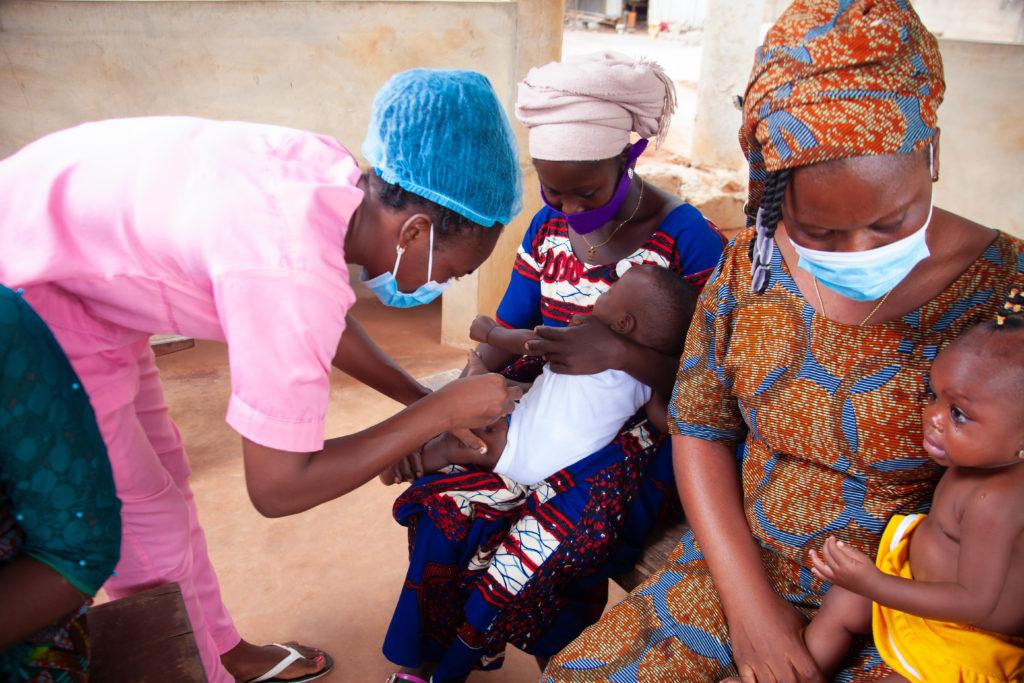
Malaria remains a persistent global health crisis, with Africa bearing the greatest burden. With a staggering 95% of (global) malaria cases and 96% of deaths, the disease poses a disproportionate burden on the continent. Despite significant strides in prevention and treatment, malaria still claims countless lives, underscoring the urgent need for sustained and continued efforts to eliminate the disease. Even more so as lately, for a number of reasons the battle against malaria in Africa seems to have stalled.
Nigeria, my home country, remains the epicentre of the global malaria burden, accounting for a staggering quarter of all cases worldwide, followed closely by the Democratic Republic of Congo, Tanzania, and Niger. Besides the fact that “the mosquitoes are fighting back”, a complicating factor is the increasing impact of climate change on malaria transmission patterns, with the potential for transmission to expand to new areas. Various prevention and control strategies, including the distribution of insecticide-treated nets (ITNs), indoor residual spraying (IRS), and the provision of antimalarial drugs have been implemented in recent years and decades. That has not sufficed though.
As climate change and rising global temperatures put the fight against malaria into high gear, health system strengthening will have the largest impact in high-burden countries, particularly in service delivery to reach marginalized populations with the available tools and strategies for malaria control and elimination programs. Country ownership, and resilient health systems, thus remain top priorities for malaria elimination efforts, as outlined in WHO’s Global Malaria Plan. WHO also targets antimalarial drug resistance and the spread of the Anopheles stephensi malaria vector. Along with its global framework for malaria response in urban areas, WHO thus provides critical support for ongoing efforts to combat the disease across African countries, together with other regional and global actors (with the Global Fund being a key one).
The global fight against malaria is now entering a new phase with the introduction of groundbreaking vaccines. For too long, efforts to eliminate the disease have been hampered by a lack of effective vaccines. However, there is renewed optimism as the focus shifts from malaria control to elimination, particularly in high-burden countries. Having said that, as current clinical trials have largely focused on infants and young children, expanding these trials to include larger subgroups, such as pregnant women and young adolescents, will be critical to improve demographic representation and maximize herd immunity potential.
In 2019, the WHO approved the (moderately effective) first malaria vaccine, RTS,S/AS01, for pilot programs in Ghana, Kenya, and Malawi. In October 2021, WHO recommended the expanded use of RTS,S among children living in settings with moderate to high malaria transmission. Last week, a second malaria vaccine, the University of Oxford’s R21/Matrix-M malaria vaccine (which appears more effective) received regulatory clearance in Ghana for use in children. Nigeria just followed suit and is expected to receive 100,000 doses as a donation before market authorization.
The widespread availability of malaria vaccines remains a challenge, however, even if the picture is gradually improving. A complicating factor in this respect is that the ongoing phase 3 trials for the R21/Matrix-M vaccine still await WHO recommendation for use. Nevertheless, whereas previous concerns were raised about the commercialization of malaria vaccines and pharmaceutical companies prioritizing profits over public health, recent developments demonstrate a shift towards aligning private and commercial interests with the public good. The Serum Institute of India’s commitment to providing up to 200 million doses of the R21/Matrix-M vaccine at a reduced cost, as well as Gavi‘s investment of over US$150 million in procuring and delivering the RTS,S/AS01 vaccine, indicate a concerted effort to address these concerns. Gavi also stands ready to provide funding following WHO prequalification for the R21/Matrix-M vaccine.
Equitable vaccine distribution will be crucial for the success of the global malaria eradication effort, and building local manufacturing capacity is essential to achieve this goal. This will ensure scalability and meet the continent’s enormous market demand. African countries must secure technology transfer agreements to acquire the expertise and resources needed for vaccine production, as the continent’s large market demand and supply gap make this an urgent task. The establishment of manufacturing facilities, such as the one in Ghana, is a vital step toward this goal. These efforts will enable vaccine production locally while ensuring their long-term availability, and affordability. Moreover, community engagement plays a critical role in these efforts by addressing social beliefs and perceptions, promoting vaccine uptake, and ensuring the long-term success of malaria elimination programs.
The successful elimination of malaria in Azerbaijan and Tajikistan recently serves as a powerful reminder of the transformative impact of sustained investment and strong health systems. These countries offer a roadmap for others to follow, highlighting the importance of strong political commitment, community engagement, and effective surveillance and response systems. Accountability and transparency are also vital, with past concerns over Global Fund misappropriation in Nigeria.
As World Malaria Day approaches, the prospect of delivering a zero malaria future may be within reach. But realizing this ambitious goal will require a concerted global effort, including strong political commitment, investment in surveillance systems, and the integration of effective treatment strategies with elimination efforts. Together with community engagement, these efforts can help bring an end to the scourge of malaria in Sub-Saharan Africa and beyond.